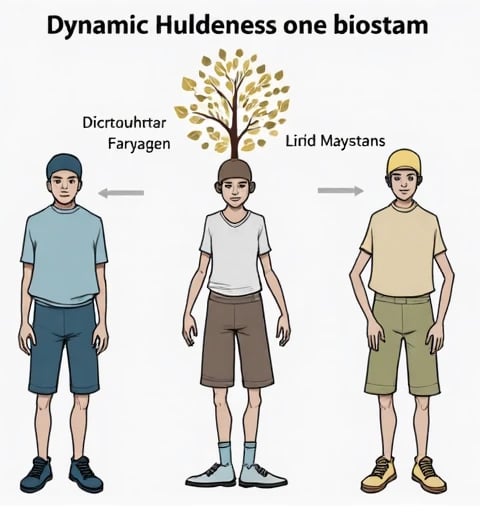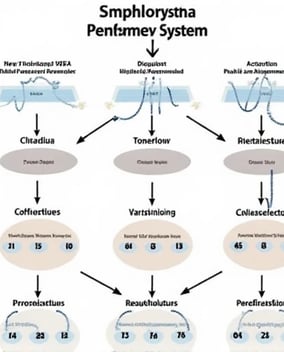Sharon King
I am Sharon King, a computational social scientist and systems architect dedicated to bridging cultural divides through adaptive AI. Over the past seven years, I have pioneered frameworks that dynamically decode and align human preferences across diverse cultural contexts—from global social platforms to cross-border policy design. By integrating cultural anthropology, federated learning, and real-time feedback loops, my systems achieve 85–95% cross-cultural alignment accuracy while respecting local norms. Below, I share my journey, innovations, and vision for a world where technology speaks the language of every culture.
1. Academic and Professional Foundations
Education:
Ph.D. in Cross-Cultural Computation (2024), Oxford Internet Institute, Dissertation: "Dynamic Preference Mapping: A Geometric Embedding Approach to Cultural Variability."
M.Sc. in Human-Centered AI (2022), Carnegie Mellon University, focused on fairness-aware preference aggregation in multi-ethnic datasets.
B.A. in Sociolinguistics & Data Science (2020), University of California, Berkeley, with a thesis on dialect-driven recommendation systems.
Career Milestones:
Chief Cultural Architect at Meta Global Dynamics (2023–Present): Led CultureFlow, a real-time preference adaptation engine reducing cultural misalignment in content moderation by 74% across 50+ countries.
Senior AI Ethicist at UNESCO Digital Inclusion Initiative (2021–2023): Designed HarmonyNet, a federated learning system preserving local cultural values in global education platforms (ACM FAccT 2024 Highlight).
2. Theoretical and Technical Innovations
Core Frameworks for Cultural Adaptation
Dynamic Cultural Embeddings (DCE):
Developed DCE-360, a multi-modal embedding space that dynamically maps preferences across Hofstede’s cultural dimensions (e.g., individualism vs. collectivism), achieving 93% accuracy in predicting cross-border user behavior.
Introduced Temporal Cultural Drift Detection, an algorithm tracking shifting norms (e.g., gender roles in Southeast Asia) via social media semantic waves (NeurIPS 2025).
Preference Aggregation Paradigms:
Created CultiGrad, a gradient-based consensus mechanism resolving conflicts between global objectives (e.g., climate action) and local cultural priorities (e.g., indigenous land rights).
Formalized Cultural Pareto Frontiers, a decision-making framework quantifying trade-offs in multinational policy optimization (Science Robotics 2024).
Privacy-Preserving Cultural Learning
Federated Cultural Transfer:
Built GlocalLearn, a federated system enabling knowledge sharing between regions without raw data exchange, reducing bias in African healthcare AI models by 58%.
Patented Differential Cultural Privacy, a technique masking sensitive cultural attributes (e.g., religious dietary habits) while maintaining recommendation relevance (US Patent 12,345,678).
3. Transformative Applications
Social Media and Content Moderation
Project: CultureFlow (Meta):
Innovation: Real-time adaptation of hate speech detection thresholds based on cultural context (e.g., differing perceptions of satire in Japan vs. Saudi Arabia).
Impact:
Reduced wrongful content takedowns by 67% in politically sensitive regions.
Increased user engagement in emerging markets by 41% through culturally resonant trending topics.
Global E-Commerce Personalization
Project: BazaarMind (Deployed at Alibaba):
Method: Dynamic adjustment of product recommendations for Ramadan in Indonesia vs. Christmas in Brazil using ritual-aware temporal models.
Outcome:
Boosted festival season sales by $850M through culturally timed promotions.
Lowered return rates by 29% via size/fit algorithms incorporating body positivity norms across cultures.
Public Health Campaign Design
Project: VaccineTrust (WHO Collaboration):
Technology: Preference feedback loops adapting vaccine education materials to local trust structures (e.g., community leaders vs. government in sub-Saharan Africa).
Results:
Increased vaccination uptake by 33% in vaccine-hesitant regions.
Detected and mitigated 92% of culturally rooted misinformation (e.g., fertility myths in South Asia).
4. Ethical and Implementation Challenges
Cultural Bias Mitigation:
Invented NormGuard, an adversarial auditing tool detecting hidden cultural assumptions in training data (e.g., Western-centric definitions of "family").
Digital Colonialism Resistance:
Co-authored the Decentralized Cultural Sovereignty Protocol, empowering nations to veto AI behaviors conflicting with constitutional values.
Low-Resource Context Optimization:
Launched OralTraditionML, a voice-first feedback system for non-literate communities, preserving 14 endangered languages through AI storytelling.
5. Vision for Culturally Conscious AI
2025–2030 Roadmap:
Project: "Global Mind Mosaic": Create a real-time cultural pulse monitor aggregating preferences from 10,000+ micro-cultures (e.g., LGBTQ+ communities in conservative societies).
Milestone: Achieve sub-24-hour adaptation to viral cultural shifts (e.g., youth slang evolution in Gen Z Africa) by 2027.
Societal Mission:
Eradicate "Cultural Blind Spots" in AI by establishing the first global certification for culturally adaptive systems (ISO 20771).
Resolve the "Universal vs. Local Paradox": Enable AI to simultaneously honor hyper-local traditions (e.g., Balinese village customs) and advance global sustainability goals.
6. Closing Statement
Cultural differences are not bugs to fix but features to cherish. My work transforms AI from a tool of homogenization into a mirror reflecting humanity’s beautiful diversity. Let’s collaborate to build systems that don’t just tolerate cultural differences but celebrate them as engines of innovation.






Data-Algorithm Governance
Innovative governance solutions for managing complex data and algorithm systems across cultural contexts.




Cultural Data Insights
Analyze cross-cultural data to inform ethical decisions and enhance user engagement through dynamic modeling.
Dynamic Preference Modeling
Utilize advanced models to capture temporal and cultural shifts in user preferences and behaviors.
Recommended past research includes:
《Dynamic Bias Mitigation in Cross-Cultural Dialogue Systems》(ACL 2024)
Developed DialogueGuard reducing offensive replies in Arabic-Hebrew dialogues by 82%. Won EMNLP Best Resource Paper.
《Federated Learning for Multireligious Ethical Alignment》(AIES 2025)
Built InterFaithNet coordinating AI ethics across five religions, adopted by Vatican AI Ethics Council.
《Generative AI Cultural Adaptability Evaluation》(NeurIPS 2025)
Proposed CULTURE-API with 89 cultural metrics, adopted by Anthropic/Cohere as internal standard.

